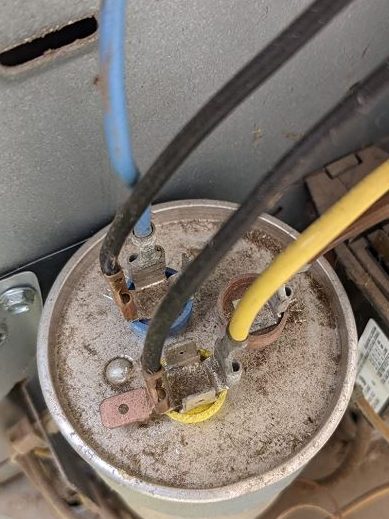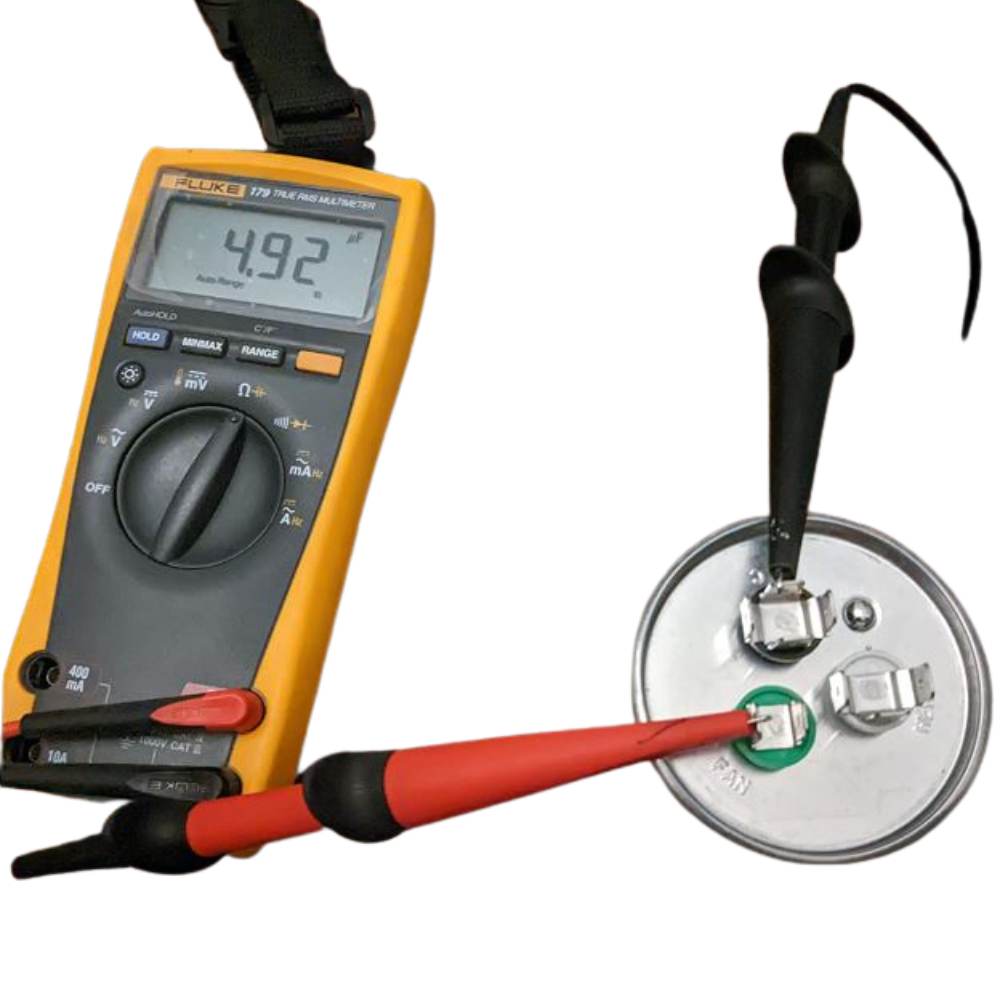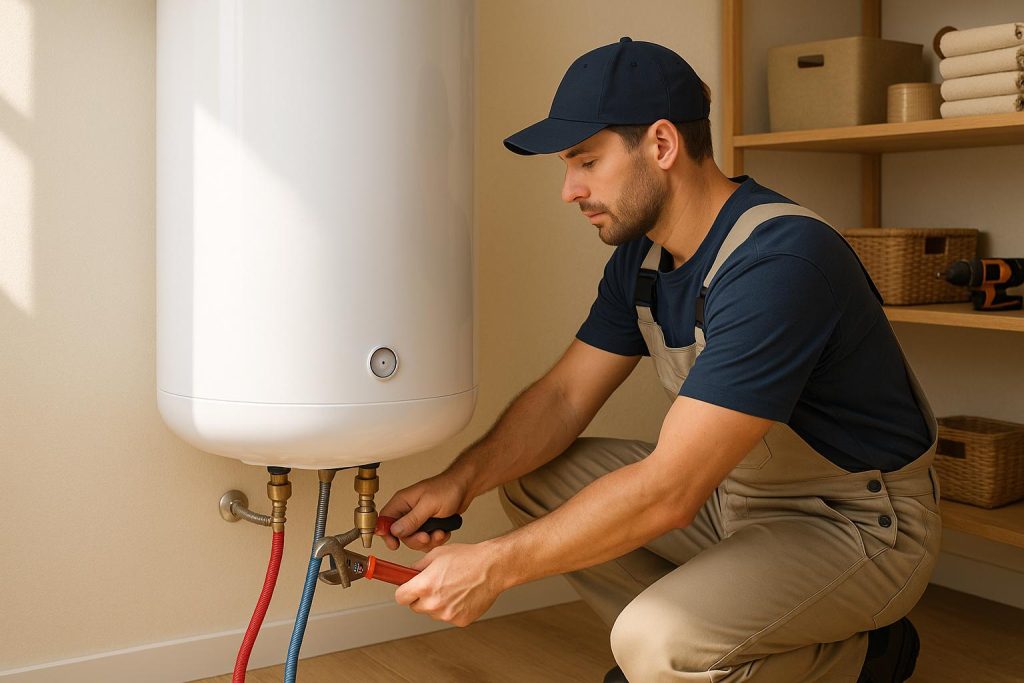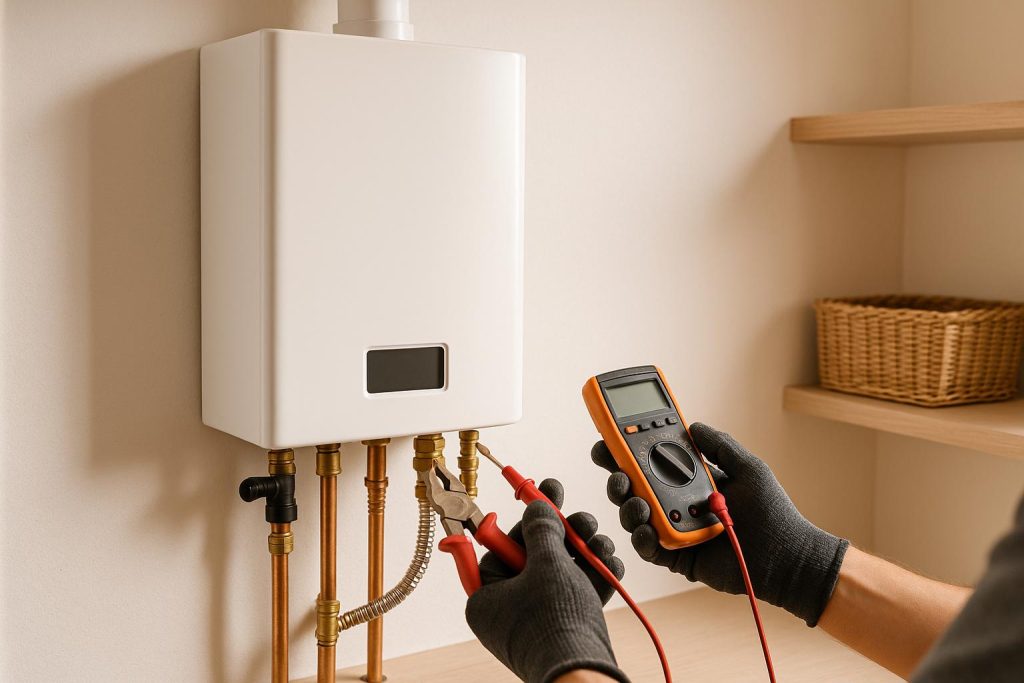
Running an air conditioner with a bad capacitor is ill-advised and can lead to various detrimental consequences. A capacitor is a vital component of the AC system responsible for starting and running the compressor and fan motors efficiently. Here’s why you shouldn’t run your AC with a faulty capacitor:
- Reduced Cooling Efficiency: A bad capacitor can lead to decreased cooling performance, resulting in insufficient cooling during hot weather. Your AC may struggle to maintain comfortable indoor temperatures.
- Increased Energy Consumption: When the AC compressor and fan motors work harder due to a failing capacitor, they consume more electricity, leading to higher energy bills.
- Shortened Equipment Lifespan: Continued operation with a bad capacitor can put excessive stress on the AC’s components, potentially reducing its overall lifespan. Premature wear and tear may result in costly repairs or a need for a replacement sooner than expected.
- Risk of Further Damage: Ignoring a bad capacitor may cause it to fail completely. In some cases, a failed capacitor can lead to additional damage to the AC’s compressor and fan motors, resulting in more extensive and expensive repairs.
- Inconsistent Performance: An AC with a bad capacitor may exhibit erratic behavior, such as frequent cycling on and off or unreliable cooling. This inconsistency can lead to discomfort and frustration.
- Emergency Breakdown: Running an AC with a bad capacitor increases the risk of a sudden system breakdown, potentially leaving you without cooling during the hottest days of the year.
- Safety Concerns: Faulty capacitors can sometimes overheat or fail catastrophically, posing safety hazards. They can release harmful chemicals or even explode, causing damage and injury.
Why Does an Air Conditioner Need a Capacitor?
It is not only air conditioners which need capacitors. Most of the electrical appliances in your house have capacitors but AC capacitors are big and tend to fail more often.
A capacitor is a device which stores electrical charge and then releases it when needed. In the case of air conditioners, there are start and run capacitors.
Usually, an air conditioner motor will need about 360 volts to start. However, most houses are connected to 240 volts of power. And that is where capacitors come in.
Most capacitors have a voltage of at least 370 volts which means that they offer the AC circuit the needed torque to start and run. When the thermostat calls for cooling, the start capacitor supplies the motor circuit with the initial jolt of electricity to move the motor from idle until it picks up speed.
The start capacitor is then disconnected immediately, and the run capacitor picks up. Run capacitors basically stores charge so that they can swiftly release it to the system circuit should it be needed, allowing the motor to run optimally and efficiently.
Some AC systems however do not have a start capacitor though. Whenever your HVAC tech says that your AC capacitor is out, they are often referring to the run capacitor. Run capacitors have a shiny metallic exterior while start capacitors have a black plastic exterior.
Modern AC however have a dual run capacitor instead of 2 separate capacitors. These capacitors have 3 terminals instead of two. The first one is the common terminal, the second is connected to the compressor motor while the last one is connected to the condenser fan motor.
Will a an AC Work with a bad Capacitor

An air conditioner may still work with a bad capacitor. While it will not cool efficiently and will sometimes take too long to start or stop prematurely, the outside AC unit will still be running.
One of the clearest sign that your AC capacitor is out is when you walk out and peep inside the outside/condenser unit and you notice that the fan is not spinning but the condenser unit is running.
As I mentioned, AC capacitors help the motors to start and run optimally by giving it and extra torque. To prove that point, if you use an object like a stick to manually start the fan motor by turning them (the correct way), you will notice that they will start turning properly again.
At that time, you need to stop the air conditioner and have the capacitor replaced. Continuing to use an AC with a bad capacitor can cause your unit to fail prematurely.
So, what exactly happens when you use an air conditioner without/with a bad capacitor?
Running an air conditioner with a bad capacitor causes the entire system to work harder than usual. The first effect of that is more consumption of electricity which translates to high energy bills.
Also, insufficient voltage supply to the system’s circuit causes the system to run for a long time (work harder) as it tries to cool the house. Usually, motors are not designed to work for a long time. They need time to cool off before the next cycle can start.
When the AC system works harder than usual, the motors will generally overheat and they will burn out. That will result in more expensive repairs/replacement especially if you have to replace the compressor.
As you can see, the only logical thing to do when you have a bad AC capacitor is to replace it.
How Can You Tell that Your AC Capacitor is Blown?
What are the signs of a bad air conditioner capacitor? The following are the telltale signs that your AC capacitor is blown:
- AC will not start at all
- It takes the AC a while before it can start
- The AC will turn off unexpectedly
- Burning smell from the condenser unit outside
- Humming noises from the condenser unit
- Condenser fan to turning but the AC is on
- AC running but no cold air is being supplied in the house
- High electricity bills despite poor cooling from the AC
What Happens if you Bypass an AC capacitor?
Bypassing an AC capacitor is just like using the AC with a bad capacitor. In essence you are using your AC without a capacitor.
There is a reason why AC units are designed to use capacitors. Bypassing the capacitors simply means you are altering the design of the AC system and is ill advised.
But why is bypassing a capacitor in an air conditioner such a bad idea? I will tell you why.
Let us start with a motor start capacitor. As I mentioned, the function of this capacitor is to supply the motor with initial powerful voltage needed to bring it from idle to running.
When you bypass a start capacitor, you are in essence reducing the starting torque that the motor needs. As a result, the motor will not start or will take a long time to start. That causes the windings to overheat and burn out.
The start capacitor also helps the motor turn in the right direction. Bypassing the capacitor may cause the motor to run backwards, meaning that the AC unit will simply not cool the house.
Since capacitors have a higher voltage rating than the line supply (which the motor will be connected to if you bypass the capacitor), run capacitors provide the motor with more torque, allowing it to run optimally and efficiently.
Bypassing the AC run capacitor will cause the motor to work extra hard to keep up with your house’s cooling demand. That will not only increase the power consumption of your unit but it will also cause the motor to overheat and burn out.
In short, the advice here is to never bypass an AC capacitor. If you suspect it has gone out the best thing is bring an HVAC technician over and have a look.
How to Test if your AC Capacitor is Bad

I must start by issuing a warning that you shouldn’t replace capacitors on your own. AC capacitors should be replaced by licensed HVAC technician.
The reason for that is because capacitors carry a large amount of voltage which can shock you if you touch the terminals, even when power is disconnected. Run capacitors are however safer to work with than start capacitors.
You can tell a bad AC compressor by visually inspecting it or by testing it with a multimeter. The first thing to do however is turn off power to the outside AC unit.
Visually, you can tell if a capacitor is bad if it is bulged/swelled, or when it is leaking out a fluid. When you see any of those signs you don’t even need to test it. Just replace it with a good one.
To test a capacitor using a multimeter, you will need to first disconnect it from the condenser unit. It is always good to get a picture of the connections before disconnecting the wires. Don’t handle the wires or capacitor terminals with your bare hands.
Once you have the capacitor out, always work with the assumption that it is charged. The first thing to do therefore is to discharge it. A screwdriver with and insulated handle is a good tool to use here.
For a single capacitor, place the metal part of the screwdriver across the terminals. That screwdriver will short/discharge the capacitor.
If you have a dual capacitor, use the screwdriver to connect the COMMON terminal to HERM and then COMMON to FAN. You can then go ahead to test the capacitor.
What you will be testing for is the capacitance (how much charge the capacitor can hold) measured in microfarads. The capacitance of a capacitor is clearly written on the outside and with a margin of error (usually around 6%) as well.
If you have a dual capacitor you will have something like 45/5 microfarads. The high capacitance is for the compressor (HERM) while the low rating is for the fan.
Set your micrometer to the capacitance (MFD) setting and measure the capacitance across the terminals. If it is below the required range (plus/minus the allowed error) then it is bad and you will need to replace it.
Always replace a capacitor with another capacitor of the same rating (voltage and capacitance). Buy quality capacitors and avoid the cheap ones to prevent having to replace them too often.
And basically that is everything regarding how bad AC capacitors affect how air conditioners work. I hope you enjoyed it.





